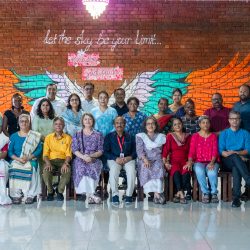Opioid access workshops
We are determined; we will reduce the pain burden in India.
India’s new opioid law came into being in 2014. The government of India completed the required formalities in May 2015. But the law needs to be implemented by state government. In an effort to catalyse the process, we organised 2 opioid access workshops recently.
The first was in Dehradun in Uttarakhand on 26 June 2016. Mr Satya Narayan Dash from Ministry of revenue of government of India was the guest of honour. Congratulations Dr Mayank Gupta, Aditi Chaturvedi, Brenda Ward and all organisers.
The second was at the NKP Salve Institute of Medical Sciences and Lata Mangeshkar Hospital, Digdoh, Nagpur on 8th July 2016. Dr Prabhat Nichkoade and Dr Ravindran Kshirsagar conducted the event.
The Panel of speakers was a mix of drug regulators and medical professionals. The audience consisted of medical and nursing students, medical and nursing professionals, several decision makers at management level, invited professionals from the region and eminent citizens of Nagpur. The charismatic Secretary of the managing trust, Dr Deshmukh inaugurated the function. After emphasizing the essentiality of certain narcotic medications for the severe forms of pain, Mr G.Kekatpure, the joint commissioner and Mr V R Ravi, the drug inspector from the Food and Drugs Department, Nagpur gave a detailed account of the state regulatory system that was prevalent in the region. Dr Nandini Vallath, from the Trivandrum Institute of Palliative Sciences provided the updated information on the 2014 Amendment of the NDPS Act and the duties of state machinery regarding implementing the modified rules to ease access and availability of essential narcotics for medical use.
The striking feature common to both was the general lack of clarity on the new law and it’s implementation. The discussions certainly provided the needed clarifications.




